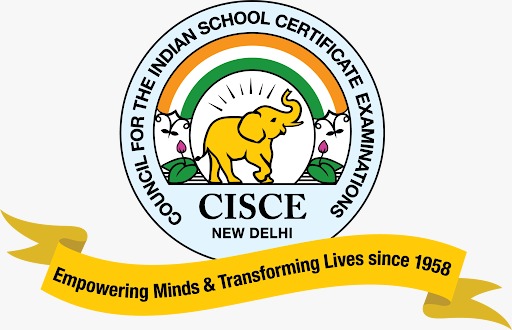Introduction
School bells might signal the end of the academic day, but for many students, the most transformative learning begins after school. From robotics clubs and football practice to drama rehearsals and volunteering, after school activities are more than just ways to pass the time—they’re powerful tools for personal growth, skill development, and emotional well-being.
In today’s fast-paced world where academic performance often takes center stage, it’s essential to remember that education doesn’t end in the classroom. What students do beyond the bell can shape who they become just as much as what they learn during lessons. That’s why progressive institutions like the best schools in Whitefield actively promote structured and inclusive after-school programs.
The Hidden Power of After School Activities
After school activities offer a dynamic learning environment that supports holistic development—a well-rounded approach that nurtures the mind, body, and spirit. Unlike structured classroom lessons, these programs give students the freedom to explore their passions, build confidence, and develop real-world skills.
When students engage in meaningful activities outside school hours, they experience:
- Enhanced creativity and critical thinking
- Increased motivation and focus in academics
- Improved time management and responsibility
- A stronger sense of identity and purpose
Whether it’s music, sports, coding, or debate, these opportunities allow students to take initiative, solve problems, and collaborate—all essential for success in life and work.
A World of Choices: After-School Activities Students Love
One of the greatest strengths of after school programs is the sheer variety of options available. There’s something for every interest and personality type. Here are just a few categories schools and parents can encourage:
1. Sports & Physical Fitness
These activities build stamina, teamwork, and discipline.
- Football, basketball, cricket
- Martial arts, yoga, gymnastics
- Swimming and track & field
- Skating or dance fitness classes
2. Performing & Visual Arts
Perfect for students who express themselves creatively.
- Music (instrumental or vocal)
- Theatre and drama
- Drawing, painting, sculpture
- Photography or videography clubs
3. Academic & STEM Clubs
Ideal for those who enjoy challenges and problem-solving.
- Robotics and coding clubs
- Science clubs or math circles
- Astronomy or chess club
- Debate and quiz teams
4. Language, Literature & Culture
Fostering communication skills and cultural appreciation.
- Creative writing or poetry
- Book clubs or reading circles
- Foreign language clubs
- Heritage and storytelling groups
Clubs that explore language elements—like Idioms and Phrases—also sharpen vocabulary, wit, and verbal expression.
5. Community & Social Responsibility
Helping students build empathy and leadership skills.
- Volunteering and community service
- Eco-clubs or gardening groups
- School newspaper or editorial team
- Leadership or student council roles
The key is to allow students to choose activities that spark their curiosity and joy, rather than those that simply “look good” on a résumé.
Academic Benefits Beyond the Classroom
Contrary to the myth that after school activities distract from studies, research shows they actually enhance academic performance. Students involved in extracurriculars often develop better study habits, higher attendance rates, and more positive attitudes toward school.
Here’s why:
- Activities that require commitment—like school plays or sports—teach discipline and perseverance.
- Performing arts and debate sharpen language and communication skills.
- Chess, robotics, and coding clubs boost logical reasoning and problem-solving abilities.
- Physical activity through sports improves concentration and memory.
Educational support activities such as spelling-focused clubs that apply Spelling Strategies offer engaging ways to reinforce literacy skills beyond the textbook.
Life Skills That Last a Lifetime
Perhaps the most important contribution of after school activities is the development of life skills. Students learn how to manage time, work with others, take constructive criticism, and cope with both success and failure. These experiences build emotional intelligence, resilience, and adaptability—qualities that textbooks alone can’t teach.
For example:
- Team sports teach leadership and collaboration.
- Performing arts foster confidence and self-expression.
- Volunteering instills empathy and a sense of social responsibility.
Interactive platforms that offer Educational Games also enhance critical thinking, decision-making, and teamwork in fun and engaging ways.
Boosting Emotional Well-Being
Today’s students face increasing academic pressure, social comparison, and screen time overload. After school activities offer a healthy outlet for emotional release and connection. They help reduce anxiety, prevent burnout, and foster friendships based on shared interests rather than classroom competition.
A student who struggles with academics might discover their strength in painting, music, or athletics, helping them build self-worth and balance. These programs also create safe spaces for emotional expression and meaningful relationships with peers and mentors—key components of emotional development in growing children and teens.
Creating a Sense of Belonging
School can sometimes feel isolating for students who don’t fit the typical academic mold. After school activities create inclusive spaces where every student can belong and thrive. These programs often become the reason why some students look forward to coming to school at all.
Whether it’s a quiet student finding their voice in drama club or an introverted teen excelling in chess tournaments, these moments of recognition and achievement create lasting self-belief.
Programs rooted in fun and creativity—like those inspired by Fun Activities for Kids—help students discover new passions and connect with like-minded peers.
The Role of Schools and Parents
The success of after school activities depends largely on supportive school environments and proactive parenting. Schools must recognize that learning doesn’t stop at 3 p.m. and provide structured, diverse, and inclusive after school programs. Parents can encourage exploration by helping children discover and commit to activities they genuinely enjoy—not just those that look good on a résumé.
Together, schools and families can:
- Identify each child’s interests and strengths
- Ensure a balanced schedule with time for rest, homework, and play
- Provide emotional support during setbacks and celebrate progress
A Real-Life Perspective: Transforming Potential into Passion
Take the example of a quiet middle-school student who lacked confidence in academics but loved tinkering with gadgets at home. After joining the school’s robotics club, they not only learned coding and design but also discovered a new sense of purpose. Encouraged by mentors and energized by hands-on learning, they began performing better in science and math, participated in interschool competitions, and started dreaming of a career in engineering.
Engaging in hands-on math topics—like exploring Real Numbers—within after-school STEM programs can spark similar curiosity and excellence.
This transformation is not unique. When given the right outlets, children can unlock potential that traditional classrooms sometimes miss.
Conclusion
After school activities are not just extracurricular—they’re extra essential. They ignite passions, nurture talents, and support well-rounded development that prepares students for life—not just exams.
As we rethink what modern education should look like, we must look beyond the bell. Investing in these programs today is investing in resilient, capable, and confident individuals tomorrow.
FAQs
Yes. Studies show that students involved in extracurricular activities often perform better academically and show improved focus and motivation.
Quality matters more than quantity. One or two well-chosen activities that align with a student’s interests and schedule are ideal.
Absolutely. These activities offer creative and social outlets that reduce stress, boost confidence, and promote emotional health.
Yes. Activities like art, music, reading clubs, or science projects allow introverted students to engage at their comfort level.
Encourage exploration, help manage time wisely, attend events, and celebrate progress—these small gestures go a long way.








